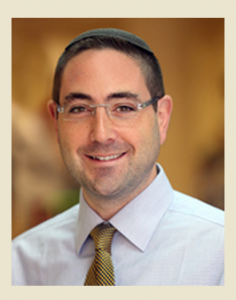
By Rabbi Ari Enkin, rabbinic director, United with Israel
The “afikoman” is the treasured piece of matzah that is hidden, ransomed, and then eaten at the end of the Passover Seder. There is much more to the word than meets the eye.
As we will see, there is actually much more meaning behind the word “afikoman” than meets the eye. There are those who teach that keeping a piece of the afikoman matza is a special merit (segula) for a number of things, especially for Divine protection.
We are first introduced to the afikoman in the Mishna which teaches “ein maftirin achar hapesach afikoman”, which is widely understood to mean that one is not permitted to eat or drink anything on the Seder night after one has eaten the afikoman. This is because just as the taste of the Passover sacrifice (korban Pesach) was required to linger in one’s mouth for the duration of the Seder night, so too the taste of the afikoman, which is eaten in place of the korban Pesach, is to linger in one’s mouth, as well. Similarly, there is an interpretation that the word afikoman means “do nothing”, as if to say that one may not eat anything else following the afikoman.
It is also suggested that the word afikoman is actually a compound of the two words “afiku” and “min” or “afiku minei metika” referring to desserts and delicacies that are served at the conclusion of a meal. According to this approach, the teaching “ein maftirin achar hapesach afikoman” essentially means “do not eat dessert after the afikoman (which recalls the korban Pesach) has been eaten.” Alternatively, the afikoman itself is the dessert of the Seder night. As a general rule, one may not eat or drink anything after one has eaten the afikoman except for the last two required cups of wine. Water, coffee, tea, and soda are permitted.
A rather unique interpretation as to the origin of the word afikoman suggests that it refers not to food, but rather to a social event. In Roman times, it was customary on festival nights for people to go from one gathering to another for after-dinner entertainment and merry making, a practice referred to as “epikomazein” – afikoman. These parties almost always included lewd and immoral activities due to the excessive drinking and levity that was common at these events. Another interpretation of afikoman teaches that the word refers to the singing and musical entertainment that were a feature of these parties. The Rabbis wanted to prevent this type of Roman revelry and therefore they decreed “ein maftirin achar hapesach [epikomazein] afikoman” – which essentially prohibits participating in the Pesach Seders of others. This also supports the interpretation that the word afikoman is a compound of the words “apiku manaichu”, loosely translated as “to take one’s dishes and eat somewhere else”. Therefore “ein maftirin achar hapesach afikoman” is a ban against beginning one’s Seder in one location and finishing it in another. Of course, once one has completed one’s own Seder in its entirety, one is permitted to attend another Seder as an observer.
This United with Israel Torah thought is an excerpt from Rabbi Enkin’s book “Shu’t Hashulchani” which deals with over 100 fascinating topics in Jewish Law and Custom. To order the book for only $25 (including shipping!) please contact Rabbi Enkin directly: rabbiari@hotmail.com.
Chag Sameach (Happy Passover) from Israel!


Send Passover Packages to Needy Israeli Soldiers - Bring Them Joy!
We are honored to thank the young men and women of the IDF who risk their lives every day to protect the citizens of Israel. Since October 7th, soldiers have been on the battlefield for months - many are hoping to come home for Passover.
Join us in sending Passover food packages (and personal notes) to Israeli soldiers and their families.
Many soldiers spend the Passover holiday with needy families back home. The soldiers greatly appreciate your love and concern. Bring them Passover joy!
CLICK HERE TO SEND YOUR PACKAGE AND NOTE TO ISRAELI SOLDIERS!



